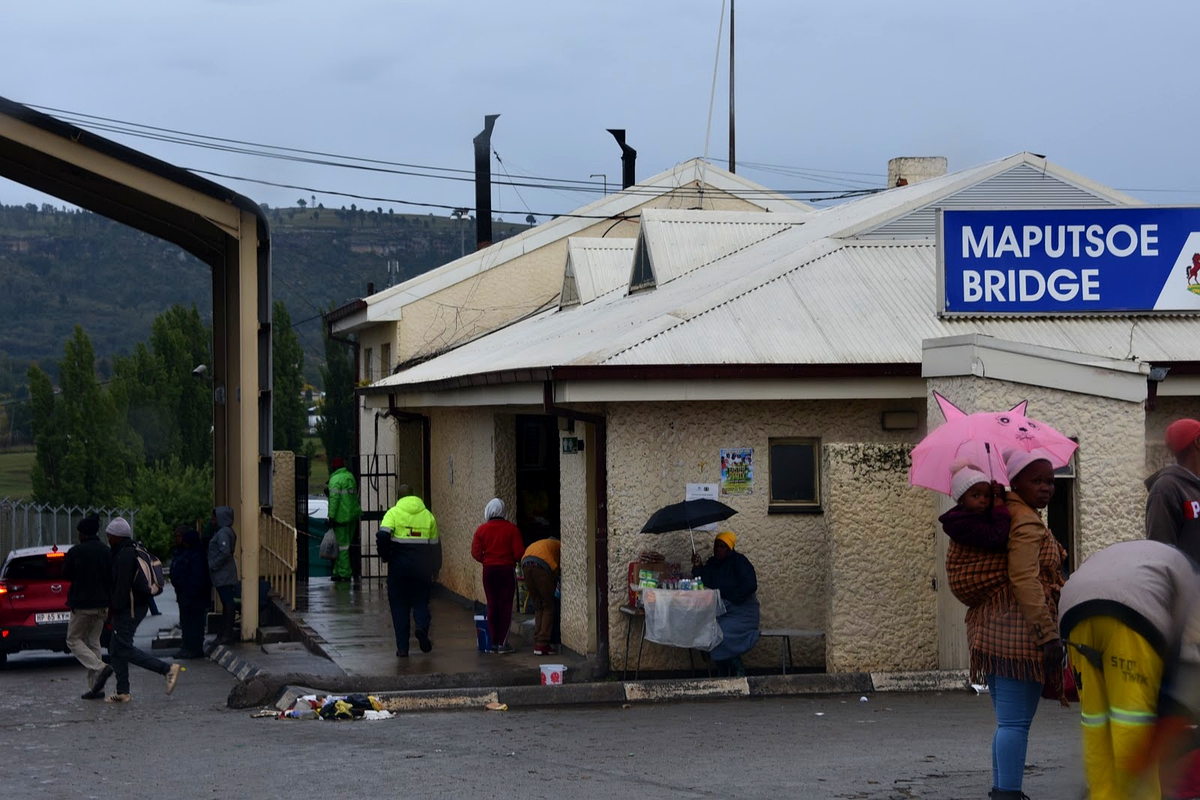MASERU - Thousands of Basotho migrant workers, both formal and informal are at the risk of losing their jobs as they struggle to return to South Africa due to border irregularities.
business
Jan. 7, 2021
NEO SENOKO
3 min read
Thousands of migrant workers could lose jobs

STRANDED: Scores of Basotho at the Ficksburg border gate
More than 120 000 Basotho migrant workers came home from neighbouring countries, particularly South Africa, during the end of year holidays but now face difficulties when they have to return to their respective workplaces.
When they came home, those whose passports had expired within the lockdown period in South Africa were given a free pass and allowed into Lesotho. But now, when they have to return to work, they are forced to produce all the proper documentation that includes valid passports, COVID-19 certificates and exemption permits.
Most of them were not been able to produce those documents and were forced to return home. Some resorted to border jumping despite the dangers of such undertaking. In an attempt to cross the perilous Caledon River (Mohokare), several deaths have been reported to date.
Police spokesperson Superintendent Mpiti Mopeli confirmed in a brief interview with Metro on Wednesday that 14 people went missing after they attempted to cross into Lesotho through the river. “So far we have 14 people that were reported to be missing. Nine of them have since been found dead while the other five are still missing.” Mopeli said.
Other people were arrested by the South African police immediately after crossing into that country through illegal means. That means jobs are in jeopardy. Most of these people do this because there are no jobs in Lesotho, while the grass looks greener on the other side.
The lucrative South African economy and better prospects for employment lead foreign nationals from all neighbouring states to flock into that country. On Wednesday the Lesotho Migrant Workers Association expressed dissatisfaction at the way the country is dealing with this matter, calling for a free movement between Lesotho and South Africa.
“We are saddened by the way the Ministry of Home Affairs is dealing with the matter. Many people will not be able to return to SA and will therefore lose their jobs.
“Yes, they did a good thing by allowing all the people to come home for the December holidays, but at the same time, people should have been made aware of the consequences they could face when they wanted to return to work,” said the Executive Director of the Lesotho Migrant Workers Association Lerato Nkhetše, in an interview with Metro on Wednesday.
Mr Nkhetše revealed that close to 4 223 people attempted to cross back into South Africa recently at Maseru border post and 761 of them had no COVID-19 certificates and were as a result tested by the South African officials. He said 70 of them were forced to return home after testing positive of the pandemic.
Enjoy our daily newsletter from today
Access exclusive newsletters, along with previews of new media releases.
Sixty others were turned back because they owned fake COVID-19 certificates. In Ficksburg, out of 3 470 people who were returning to South Africa, 511 of them did not have COVID-19 certificates and 93 others owned fake certificates. A total of 41 tested positive of COVID-19 at the border and were also forced to return home. “This is a sad situation because the number of unemployment in the country will go even higher. So we are saying that it is high time that the two countries sat down and negotiated the issue of free movement between them,” Mr Nkhetše also said.
Unemployment in Lesotho remains high at 28.0 per cent, leaving half of the population, 49.7 per cent in dire poverty while another 27.7 per cent remains vulnerable to poverty.
This is according to the Lesotho Poverty Assessment Report for the period between 2002 and 2018. Only 22.6 per cent of households are not vulnerable to poverty. Youth between the ages of 15 and 24 amounts for 43.2 per cent of the unemployment rate in the country.
Tailored for you






